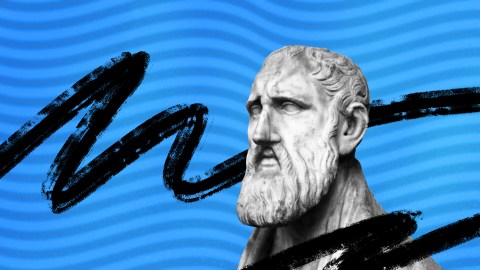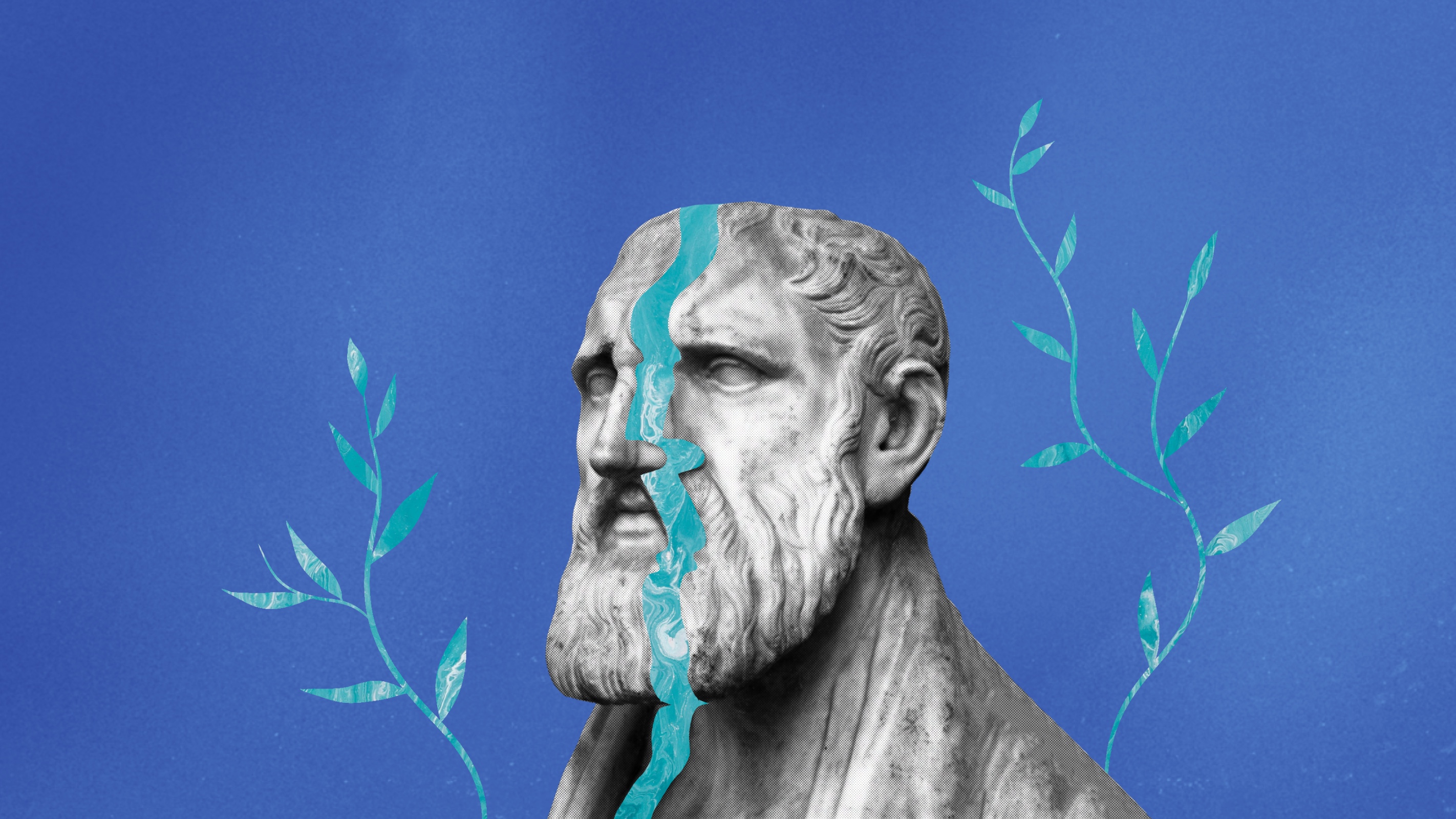Stoicism is popular right now, but there are some serious downsides

- Stoicism is huge at the moment. It produces bestselling books and gets great traction online.
- Yet, Stoics themselves believed that we should be critical thinkers, and never take on things uncritically.
- Here are a few arguments for why you might not want to be a Stoic.
Stoicism is a thing right now. If you like reading long-form articles or spend time in the “Popular Philosophy” section of a bookstore, you’ll notice an awful lot of titles focused on it. This ancient philosophy is getting great traction at the moment. However, whoever does its PR should get a promotion, because while there is much wisdom in what the Stoics have written, there’s also a lot of dubious content, too.
Like any great movement or religion, its popularity depends on the extent to which you pick and choose the bits that work for you. We can nod sagely at some aphorism on one page, yet tactfully ignore the weird or incomprehensible one that comes later. We can decontextualize the ancients from their time, and modernize the Stoic’s problems, but at what point does Stoicism become a kind of Barnum effect — that is, all things to everyone, but philosophically nebulous?
So, as a counterpoint to the prevailing conventional wisdom, here are a few reasons why you might consider not being a Stoic.
No friendship, no love
While we are all guilty of cherry picking from time to time, modern Stoics show a particularly exaggerated case of it when it comes to relationships. There is a charge often made against Stoicism that it’s concerned only with rationality. It’s an unfair one. Stoics were not emotionless Vulcans who sought only rationalism and never any feeling. Diogenes Laertius explicitly warns against being “hard-hearted” and “insensitive.” Epictetus advises a good life is not “like a statue.” Stoics aren’t robots and their position was much more nuanced.
However, it is also true that they explicitly warn against worldly attachments of any kind. Most of us can get on board with discarding vanities like smartphones, luxury clothes, and fast cars. But to be truly Stoic also means never to attach to your country, your friends, your family — or anything. You cannot hold anything too closely. Everything must be treated as disposable (because, ultimately, it will be disposed). So, keep your heart to yourself, and do not love as a lot of people understand it.
Anyone claiming to be Stoic but who also claims to vehemently hold close anything is willfully ignoring what the Stoics were saying. (Heck, even if you get angry about this article, you’re not being Stoic.) Attachment to Stoicism itself — like some tribal dogmatist — is the antithesis of what Stoics argue. At best, Stoics see things like friends, children, and spouses as a “preferred indifferent” — nice to have, but expendable. At worst, they’re viewed as getting in the way.
Make yourself invulnerable
Of course, the reason Stoics argue against attachments of this sort is that they often act as distractions from a higher purpose. But it’s also because Stoics were attuned to that old mantra of memento mori: everything must die, and all things must pass. Your friends might abandon you; your children could be struck by some terrible disease; your spouse might die tomorrow. If you recognize these facts, you can prepare for them and thus blunt or prevent the psychological blow of loss.
Yet, to do so misses something. The late Queen Elizabeth II once said, “Grief is the price we pay for love.” We can know this fact yet still choose to love, accepting that suffering will follow. Stoic philosophy teaches that attachment leads to suffering. Commitment leads to pain. Yet, Elizabeth II’s quote is another wisdom altogether. It tells us that love is a pain knowingly accepted. No matter how cold, long, and hard the years of grief might be, they are a fair price for even one second of true love known. In short, sometimes (but not all the time) sadness and suffering are worth it for the love that has gone before.
No man is an island
Another common thread to Stoicism is self-sufficiency. The idea is that if you are dependent on someone, then you become lesser because of it. If you let someone have control over your life and your mind, then you are not strong. So, getting upset at a partner’s betrayal makes you weak. If you want to be with someone, then that diminishes you. As Epictetus wrote, “You hand over your mind to anyone who comes along, so they may abuse you, leaving it disturbed and troubled — have you no shame in that?”
It could be argued that there is no shame in that at all. In fact, it’s inherently human. It’s a badge of pride. As Aristotle (definitely not a Stoic) argued, we are all sociopolitical animals. We can only flourish when we work together and in a society. In modern times, there are some who argue (as in this Big Think interview with Rutger Bregman) that we are evolutionarily wired to be social, cooperative, and mutually dependent. Yes, natural does not mean “right,” but sometimes unnatural does at least feel wrong.
If we juxtapose Stoicism against something like Confucianism, for instance, we might see a better way of valuing things. Confucian philosophy places great emphasis on the relational aspect of being human — which is to say that humans are defined by relationships like “daughter,” “brother,” “teammate,” “friend,” or “compatriot.” Spiders are solitary. Humans are not.
Keeping the baby and not the bathwater
None of this is to say that Stoicism is a bad system. Indeed, there’s a lot of great wisdom in the aphorisms of great thinkers like Marcus Aurelius, Epictetus, and Seneca. But that does not mean we ought to turn off our critical faculties. Criticizing aspects of a thing does not mean disowning the whole. It’s a perfectly acceptable position to pick and choose, so long as what you’re left with is something coherent.
For instance, Stoics often repeat the idea that we should accept things that are beyond our control. Yet, traditionally, they did so on the basis of a quasi-religious commitment to a predetermined universe. Stoics believed there was a plan to nature, and so we ought to accede to that. It’s philosophically coherent to take on the belief, “Accept what you cannot change,” while also rejecting the fatalism of Stoic belief.
Rationalism and philosophy were important (if not the most important) Stoic practices. Ironically, it would be entirely unStoic if we were to uncritically swallow Stoicism without even a moment’s reflection.
Jonny Thomson teaches philosophy in Oxford. He runs a popular account called Mini Philosophy and his first book is Mini Philosophy: A Small Book of Big Ideas.





